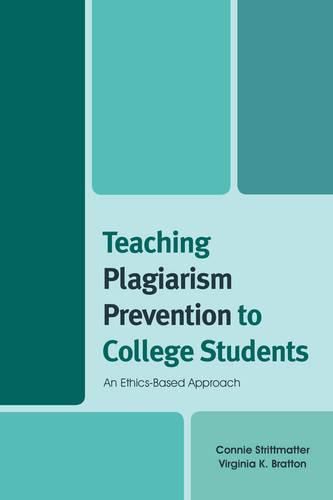Readings Newsletter
Become a Readings Member to make your shopping experience even easier.
Sign in or sign up for free!
You’re not far away from qualifying for FREE standard shipping within Australia
You’ve qualified for FREE standard shipping within Australia
The cart is loading…






Teaching Plagiarism Prevention to College Students: An Ethics-Based Approach provides an innovative approach to plagiarism instruction by grounding it in ethics theory. By providing an ethics foundation to plagiarism instruction, this book helps the plagiarism instructor to address both unintentional and intentional plagiarism behaviors among students. This book provides tools to address why plagiarism is an important ethical issue in an academic environment. This book introduces general principles of ethics adaptable to library instruction of plagiarism in a variety of learning settings. It guides an instructor through curriculum pedagogical design drawing on library and ethics training literatures. It provides examples of materials to support the implementation of an ethical approach to plagiarism instruction. Finally, it outlines a detailed approach to assessment in order to measure changes in student reactions, learning, and behaviors as a result of this instruction. It further provides guidance in how to communicate institutional outcomes to key decision-makers.
$9.00 standard shipping within Australia
FREE standard shipping within Australia for orders over $100.00
Express & International shipping calculated at checkout
Teaching Plagiarism Prevention to College Students: An Ethics-Based Approach provides an innovative approach to plagiarism instruction by grounding it in ethics theory. By providing an ethics foundation to plagiarism instruction, this book helps the plagiarism instructor to address both unintentional and intentional plagiarism behaviors among students. This book provides tools to address why plagiarism is an important ethical issue in an academic environment. This book introduces general principles of ethics adaptable to library instruction of plagiarism in a variety of learning settings. It guides an instructor through curriculum pedagogical design drawing on library and ethics training literatures. It provides examples of materials to support the implementation of an ethical approach to plagiarism instruction. Finally, it outlines a detailed approach to assessment in order to measure changes in student reactions, learning, and behaviors as a result of this instruction. It further provides guidance in how to communicate institutional outcomes to key decision-makers.